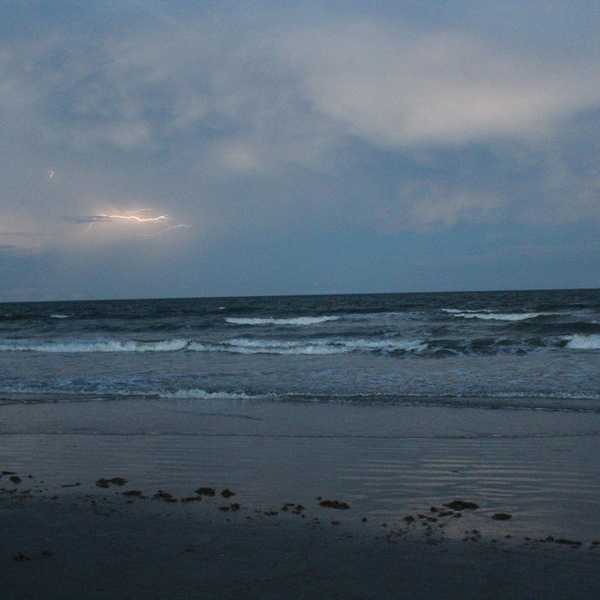Fracking is a technique of natural gas drilling that was developed in the 1940s, and it has become an extremely controversial topic over the last few decades (Hoffman, 2015). People have vocally expressed their views in protests for or against the procedure. People have driven signs into the ground in their yards to show their views to the world. People have debated to near violence in some instances over the question: Is fracking negatively impacting the ecosystem or not? The answer to that question is actually quite simple. Fracking is great, if the country wants the ecosystems of its different biomes to collapse and leave them with nothing. The cons of fracking significantly outweigh the benefits in the eyes of myself and many others. Most scientists, scientist departments at universities across the states, and writers of science journals will agree. In order to understand the dangers of fracking, it is important to understand what the process is and how it works, what it does to the standing environment, and what it can potentially cause environmentally. Think about it. Are increased earthquakes and pollution, as well as the speeding up of global warming really worth it?
Fracking is also known as hydrofracking and hydraulic fracturing. About eighty years ago, the first fracking procedure was tested, pumping 4000 liters of gasoline and sand down into the ground of a gas drilling site. They hoped it would cause more rock to crack and release more oil or natural gas. While this initial procedure failed, it is the basis of fracking today (Malakoff, 2014). The rock that fracking targets is most commonly shale. The energy sources found in this previously fossilized rock are something that the world never thought they would be able to get their hands on until fracking came to be. However, instead of using natural gasoline, water is now pushed down into the ground with the sand and an array of chemicals that are not readily or easily identified (Hoffman, 2015). Many probably wonder how this is legal due to the Safe Drinking Water Act, but there is a loophole in the law that exempts fracking.
Water pollution is one of the biggest and potentially the most deadly consequence of fracking. Water pollution is off the charts in areas of fracking, whether it be streams, rivers, ponds, or even usable groundwater. While companies will claim the chemicals released into the water by the process are virtually all but gone within a week, the flow-back waters are an entirely different story, with chemicals having half-lives from biocides of nearly a year (Batley & Kookana, 2012). Methane in Pennsylvania water wells and other pollutants in Wyoming’s water supply sparked investigations into water sources of other fracking areas. Levels of radiation are found far beyond the federal safety levels. Many cancer-causing agents, such as benzene, are used in fracking, and easily find their way into the water supply, which can go unnoticed by those consuming. This is to say everyone who drinks water can tell if it is polluted, but excludes the animals that never know what is in the water they drink. They could partake in acid water and not even notice until it is too late for them. Other than benzene, other liquid hydrocarbons, heavy metals, and brine water sweep into fissures and into the water supplies, poising city-wide blow-ups if enough gets in and is not detected (Fracking Dangers, 2013). Water pollution is extremely dangerous in itself, but something even worse is air pollution. Combine the two and it is a disaster of global proportions. Residents in a town in Colorado as much as a half a mile away (out of the reported incidents) are being exposed to harmful chemicals that can cause neurological and respiratory problems, as well as chronic health issues and the possibility of leukemia (Fracking Dangers, 2013).
Health effects are the most terrifying aspect of fracking, both on humans and animals in the ecosystem. The decrease of any animal would throw off the entire balance. Many habitats along with sanctuaries here in the United States, such as the Rocky Mountains that run through a handful of states, are also sites that hover over a jackpot of natural gas and energy. Obviously, this makes them a prime target for fracking and companies are bending over backwards to get permission to drill over them. While the national landmarks and parks, such as Yellowstone and the aforementioned Rockies, are protected by the government, many important habitats and wild lands are not so lucky as to have protection (Fracking Dangers, 2013). Oil spills and chemicals released can also find their way into the soil, which can hinder the growth of plants and trees, which are desperately trying to keep their footing in the rapid colonization of previously fertile and abundant lands (Hoffman, 2015). Another alarming phenomenon is more earthquakes, many of which have recently been linked to fracking. Scientists call these types “induced seismic events (Hoffman, 2015).” There has not been one recorded over the magnitude of 5.2 as of late, but it seems to be well on its way. Since wastewater wells are supposed to take in all of this water used in fracking, the water is highly, highly pressurized since it is so far down. In areas that have hardly had any earthquake activity in the past, seismic activity is occurring at an alarming rate. Also, since so many of these wastewater wells are in a vicinity, imagine if all of them caused an earthquake at once. This is not an impossible feat.
Apart from some previously mentioned health effects fracking has in humans, it also impacts their building codes being inaccurate because they weren’t built for earthquakes, as well as property right concerns (Sonnenberg, 2012). These risks are not something that take prolonged exposure or time to develop. They are immediate, and something these people cannot be ready for quickly. On top of these concerns, the local residents will also be given an unnecessary headache with all of the truck traffic that fracking will cause in the area. Back to physical concerns, in 2011, a list of 632 chemicals used in fracking was compiled (Hoffman, 2015). This list had over six hundred chemicals and was not even complete because of some gibberish called trade secrecy. If one wanted to know what these chemicals would affect, they would receive an answer of nearly every part of the body. 75% of the chemicals could potentially affect sensory organs, the respiratory system, and the gastrointestinal system. About 50% could affect the nervous system and brain, kidneys, immune system, and cardiovascular system. 37% could impact the endocrine system, and 25% could cause cancer and mutations (Hoffman, 2015). Those are numbers that would be extremely alarming to me if I were near a fracking site. Even the smallest exposure to certain chemicals can have hazardous effects on humans. It seems as though the fracking companies do not care what paths they cross if it means getting the maximum amount of gas and money.
As far as obtaining natural gas, with all of the science and technology the United States has today, there must be another way that is safer for everyone and everything in every ecosystem, big or small. While fracking might be a great thing in the eyes of some people, it really is not worth all of the negative consequences. If only one of the objects mentioned above is impacted negatively, it will start a domino effect that will leave a wake of destruction behind it. Everything in an ecosystem is so important to maintaining the balance it has, and it would be foolish to disturb it. So don’t. Understanding how fracking works, what it does to the environment, and what it can potentially cause is hopefully enough to open the eyes of supporters and show them how this will bring our ecosystem to its knees if it continues in abundance. Right now, fracking is not the most prominent form of natural gas recovery, but if support continues to grow, so will the industry. Some people may just be naïve. Maybe some do not really care, especially if they are getting paid for the use of their land. Maybe some just don’t understand how dire these consequences are. The question still stands until something is done about it. Is fracking negatively impacting the ecosystems? The choice is clear.





















